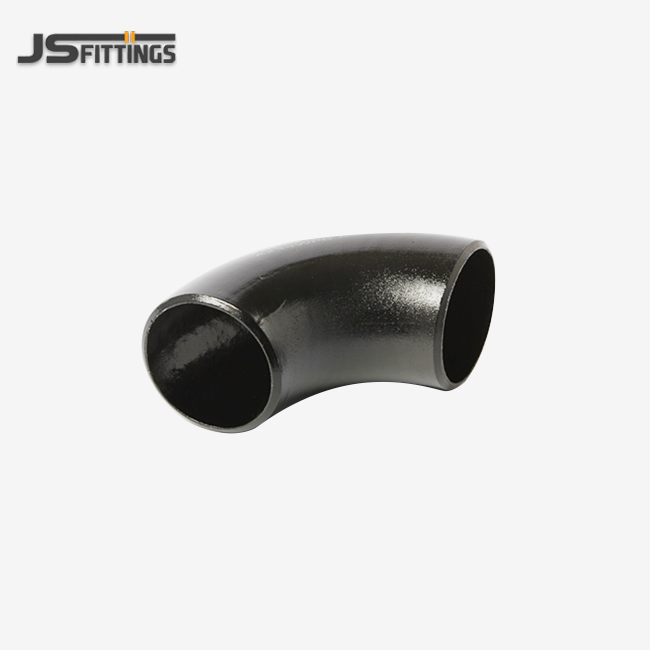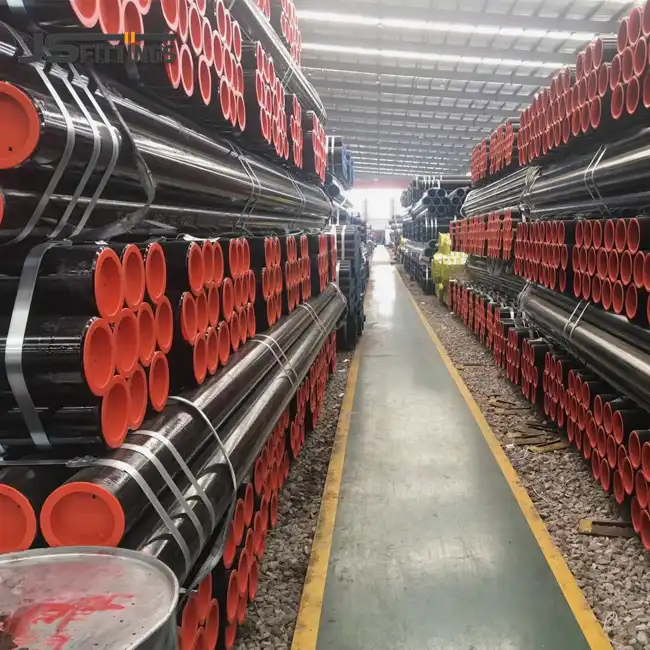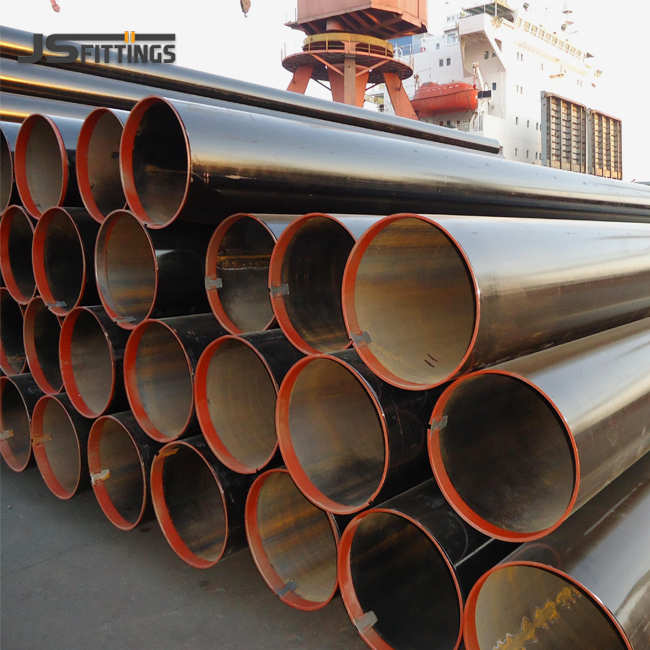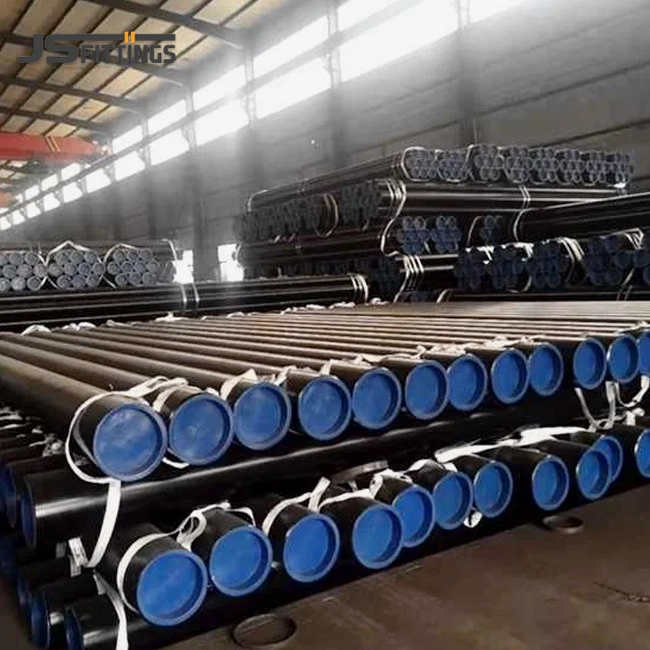It's important to know the main differences between black mild steel pipe and galvanized steel pipe for commercial use so that you can make the right choice. Black mild steel pipe is very strong and easy to work with, which makes it ideal for structural uses where resistance to rust isn't the most important factor. Instead, galvanized steel lines are better at stopping rust because they are covered in zinc, but they cost more at first. Which of these materials is chosen has a direct effect on contractors' and end users' project budgets, upkeep schedules, and the materials' long-term performance.
Black mild steel pipe and galvanized steel pipe: the main differences
The performance differences between black mild steel pipes and galvanized steel pipes primarily stem from the materials and processes used to create them. Both types begin with the same base steel, but galvanized pipes undergo an additional hot-dip galvanizing process that adds a protective zinc coating.
The coating process has a big effect on many performance parameters that are important to industrial buyers:
- Protection from corrosion: Galvanized pipes have a sacrificial zinc coating that makes them more resistant to rust, which extends their life in places where moisture is common. This coating usually extends the life of pipes by 10 to 15 years when used outside, which lowers replacement costs and maintenance downtime for facility managers.
- Cost: Black steel pipes are about 20–30% cheaper than galvanized pipes at first. But a lifecycle cost study shows that the results can be different depending on the environment in which the application is used and the maintenance needs.
- Changes in weight: Zinc coating adds very little weight, usually 1–3%, which doesn't usually change structural calculations or installation methods for most industrial uses.
These basic variances affect purchasing decisions in many fields, especially when performance needs must be balanced with budget limits.
The way these materials are installed and taken care of is also different. When black steel needs to be resistant to corrosion, it needs to be properly prepared and coated. Most uses of galvanized pipes are ready to go right away, which might save money on labor and speed up projects.
Benefits of Black Mild Steel Pipe
In many industrial settings, the main reason for choosing black steel pipe is that it is cost-effective. The economic benefits go beyond the initial purchase price and include incentives for making and installing the product.
Here are the main performance benefits that make black steel pipes appealing to industrial buyers:
- Better Weldability: Clean welding properties make it possible to make complex piping shapes without using specific methods. Standard welding tools and methods make strong joins that work for a wide range of uses and meet structural criteria.
- Excellent machinability: conventional tools can easily thread, cut, and shape the material. This cuts down on the time it takes to make things and lets you make changes on site as project needs change during installation.
- High Strength-to-Weight Ratio: Structural uses benefit from a great load-bearing capacity without too much material weight. This trait is useful for designing frameworks and support structures where weight is an important factor.
- Temperature Tolerance: These pipes can handle high temperatures, making them good for tough industrial settings. For example, they can handle steam lines and process piping systems that work at up to 400°F.
These benefits lead to lower project costs and easier installation, which is especially helpful for EPC contractors who have tight budgets and tight timetables.
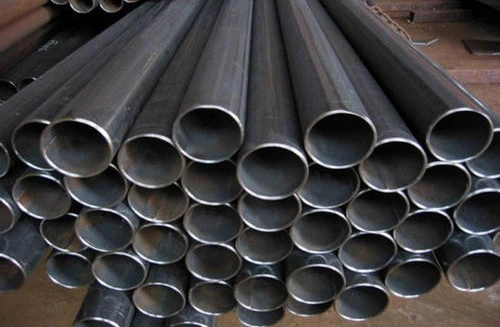
Applications of Black Mild Steel Pipe
Uses for Black Mild Steel Pipe Black steel pipes are used in many industries where strength and low cost are more important than corrosion resistance. Knowing how these applications work helps procurement experts find the best use cases.
These pipes are used a lot in construction and infrastructure projects to make structural frames, especially in commercial and industrial structures. Engineers need dependable performance data for support columns, framework connections, and temporary building projects, therefore the material's predictable response under load makes it a good choice.
Black steel is used in manufacturing plants for process piping systems that move steam, compressed air, and hydraulic fluids. The material's pressure rating capabilities, which range from 150 to 3000 PSI depending on the thickness of the wall, meet most industrial pressure needs without being too complicated.
Black steel pipes are often used in fire protection systems for sprinkler networks and standpipes. In many places, building standards specifically allow black steel for these uses. The material's fire resistant properties also meet safety system criteria.
The temperature and strength features are good for mechanical systems, such as HVAC installations. When correctly built and constructed with the right safety precautions, hot water heating systems, hydronic loops, and steam distribution networks work well.
Selecting the Right Pipe for Your Project
Choosing the Right Pipe for Your Project When making purchasing decisions, you need to carefully consider a number of aspects that will affect both short-term expenses and long-term performance. When choosing materials, environmental factors frequently matter more than the original price.
Black steel pipes are better for indoor use since they are less likely to corrode. Manufacturing plants, warehouses, and commercial buildings are good places for protective coatings to keep pipes in good shape for the whole time they are in use. These conditions let purchasers save money without giving up performance.
When you have to keep track of project deadlines and quality standards, it's very important that your suppliers are reliable. Well-known producers with full testing certifications make sure that their materials meet industry standards like as ASTM A53, ASTM A106, and API 5L. Quality documentation and traceability help meet project compliance needs, which is especially crucial for government and infrastructure projects.
Material certificates, dimensional verification, and pressure testing paperwork should all be part of quality assurance methods. Reputable suppliers give you full documentation packages that make inspections go faster and cut down on project delays.
Conclusion
Ultimately, the decision between black mild steel pipe and galvanized steel pipe depends on the needs of the project, the environment, and the budget. Black steel pipes are great for indoor use since they are cheap and easy to work with, even if they don't need to be resistant to corrosion. Because they are easier to weld, machine, and are stronger, they are great for structural applications, process piping, and mechanical systems in regulated settings. Procurement experts may make smart choices that improve project outcomes while keeping costs down and making sure long-term performance is trustworthy by knowing these substantial distinctions.
Frequently Asked Questions
Q1: What is the difference in corrosion resistance between black mild steel pipe and galvanized steel pipe?
A: Galvanized steel pipes have a protective zinc coating that makes them much more resistant to corrosion. They can survive 15 to 20 years longer outside. When corrosion resistance becomes very important, black steel pipes need protective coatings or paint systems. This makes them suitable for indoor or controlled conditions where moisture exposure is low.
Q2: How much do various types of pipes weigh differently?
A: The difference in weight between black steel and galvanized pipes is small, usually only 1–3% more for galvanized pipes because of the zinc coating. This difference doesn't usually affect structural calculations or shipping costs, thus weight isn't a big deal when choosing materials.
Q3: Can you use black steel pipes outside?
A: With the right protective coatings and maintenance plans, black steel pipes can be utilized outside. Galvanized pipes, on the other hand, work better in the long run outside without any further protection. When looking at black steel for outdoor use, the cost analysis should include the costs of applying and maintaining the coating.
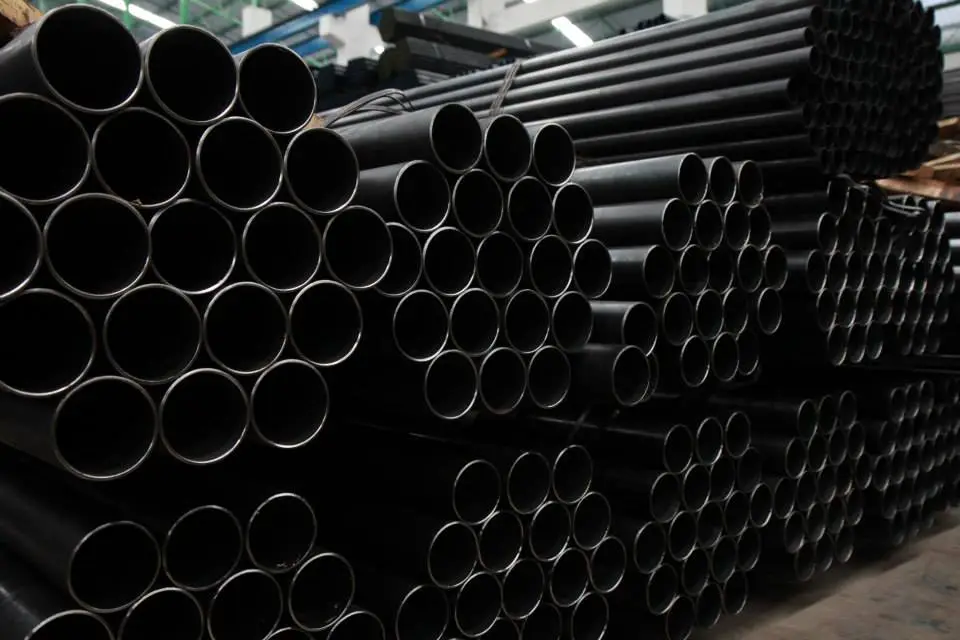
Partner with JS FITTINGS for Superior Black Mild Steel Pipe Solutions
The success, timeline, and budget of your project all depend on picking the correct black mild steel pipe manufacturer. JS FITTINGS has been making pipes for industrial uses around the world for over 40 years. They use current quality procedures to make sure their products are always reliable. Our wide choice of products and technical support services make sure you get the best materials for your needs.
Our knowledgeable team will help you with technical issues throughout the buying process, whether you need standard settings or custom specifications. We know how hard it is for EPC contractors, distributors, and industrial end users to meet project deadlines and stay within budget. That's why we provide flexible supply alternatives.
Are you ready to talk about your needs for black mild steel pipe? Call our technical experts today to find out how JS FITTINGS can help you with your next project by providing reliable, low-cost plumbing solutions. For more information about our products and technical resources, email us at admin@chinajsgj.com or go to chinajsgj.com.
References
1. American Society for Testing and Materials. "Standard Specification for Pipe, Steel, Black and Hot-Dipped, Zinc-Coated, Welded and Seamless." ASTM A53/A53M-20.
2. American Petroleum Institute. "Specification for Line Pipe." API Specification 5L, 46th Edition, 2018.
3. The National Association of Corrosion Engineers. "How well carbon steel and galvanized steel hold up to corrosion in industrial settings." NACE International Publication, 2019.
4. The American Society of Mechanical Engineers wrote the "Process Piping Code for Pressure Piping." ASME B31.3-2018.
5. Steel Construction Institute. "Comparative Analysis of the Performance of Carbon Steel Pipe in Industrial Applications." SCI Technical Report 445, 2020.
6. The International Organization for Standardization. "Steel Pipes for General and Mechanical Engineering." ISO 8535:2019.
